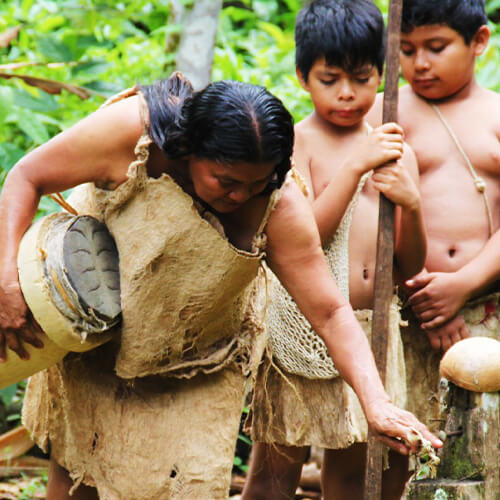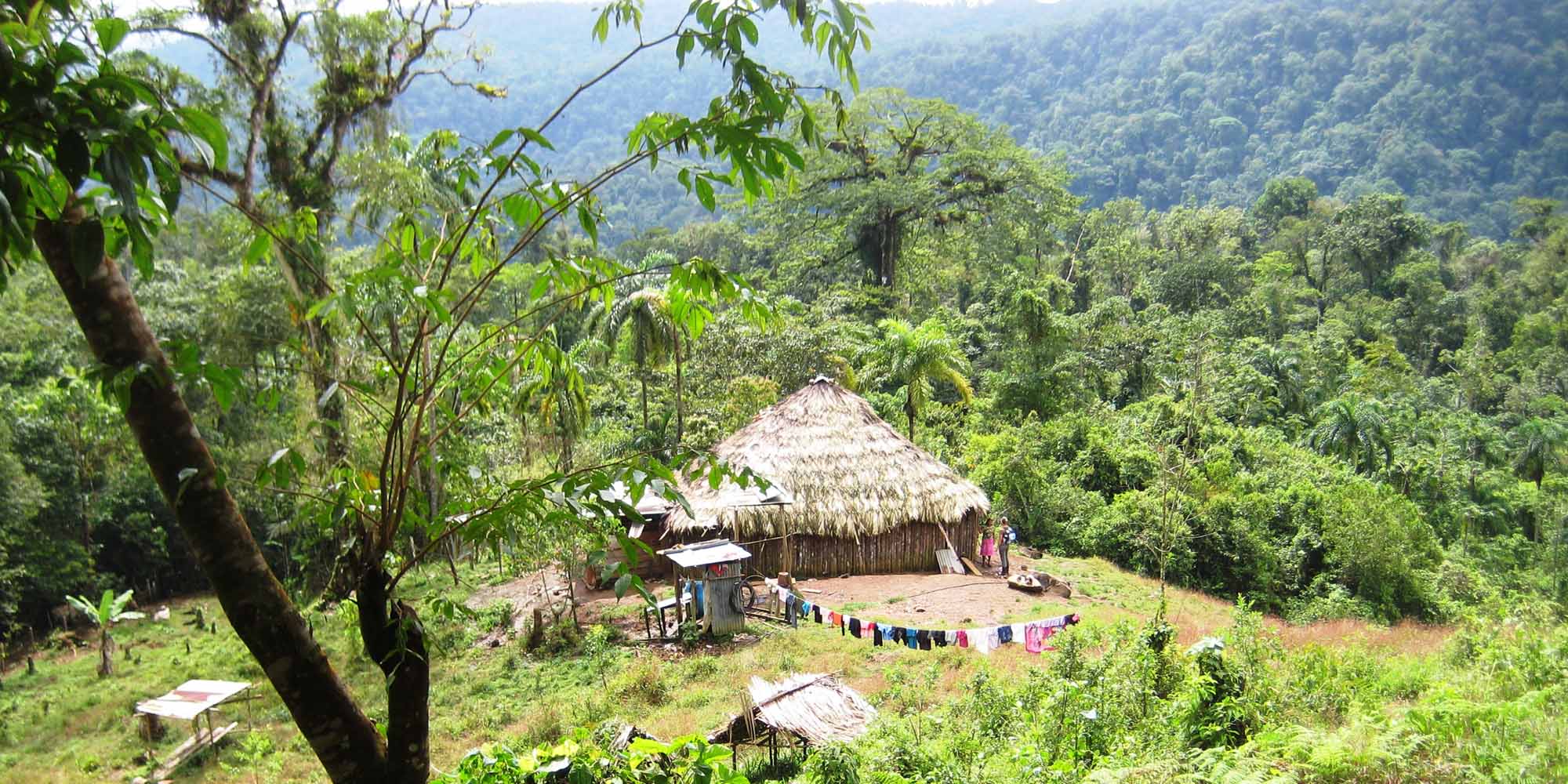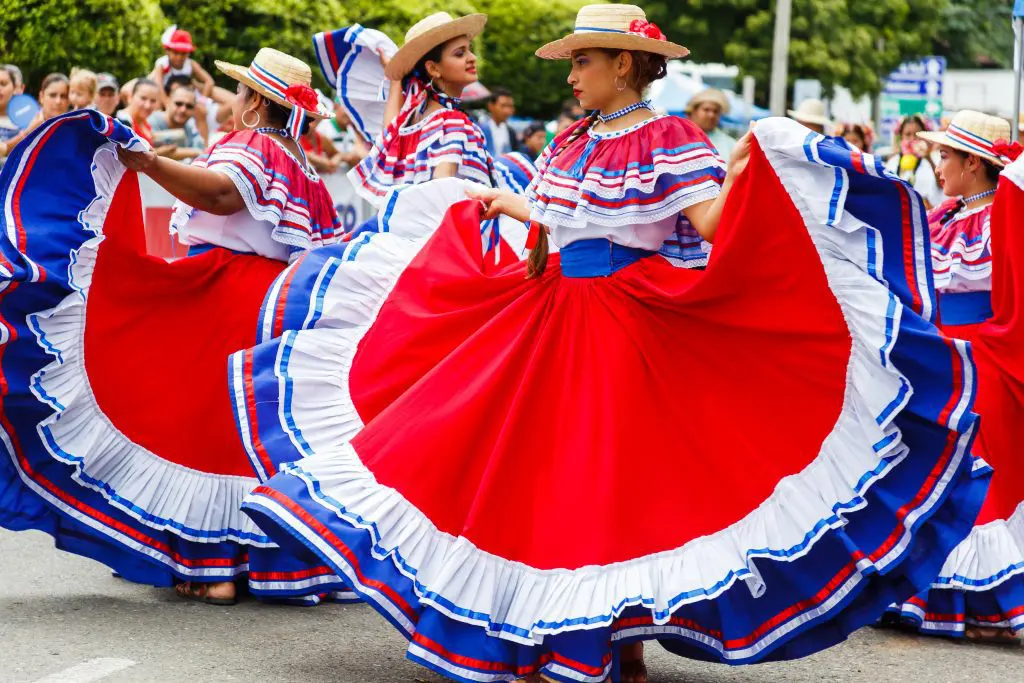Guide to Costa Rica's rainforests
Discover Costa Rica's rainforests
The rainforests of Costa Rica, covering more than half of the country, remain predominantly pristine. This vast tropical oasis is among the top destinations globally for those seeking to immerse themselves in the splendor, wildlife, and excitement of a jungle adventure.
Costa Rica is a bastion of ecological diversity, home to six distinct types of rainforests including the lush tropical, arid tropical dry, and the ethereal cloud forests. This Central American gem is dotted with over 100 different species of trees and teems with a captivating array of wildlife, including sloths, numerous monkey species, and thousands of bird species.
Costa Rica Rainforest Destinations
Among the most renowned rainforests, the cloud forests of Monteverde stand out as mystical landscapes brimming with coffee plantations, rowdy monkeys, and extensive hiking opportunities. These cloud forests are especially magical, shrouded in a mist that gives them an almost surreal appearance. Monteverde is not only celebrated for its natural beauty but also for its range of eco-friendly activities, such as zip-lining, canopy tours, butterfly farms, and bird watching. A network of hiking trails meanders through the park, offering ample opportunities to explore.
Contrasting sharply with the misty cloud forests are the tropical dry forests located along the northern Pacific coast, particularly in Guanacaste province. These forests, where Santa Rosa National Park stands out as a gem, are not as dense, thus offering greater opportunities for wildlife spotting. The region is perfect for outdoor adventures like kayaking and horseback riding, providing a different flavor of Costa Rican natural beauty.
For those seeking thrilling experiences, the lowland rain forests offer white water rafting tours. Found at altitudes of up to 1,000 meters, these forests boast the tallest trees and support numerous microenvironments, enriching the country’s status as one of the most biodiverse on the planet. One of them is Manuel Antiono National park, one of Costa Rica’s most popular and accessible rainforest experiences.
Despite its small size of only 1,983 hectares, Manuel Antiono offers incredible biodiversity and stunning coastal views. Visitors can expect to see monkeys up close, along with a rich variety of other wildlife, such as sloths, raccoons, and numerous bird species. The park features diverse terrain ranging from sea level to 160 meters, encompassing rainforest, beaches, and mangroves. A network of hiking trails winds through the jungle, leading to Playa Manuel Antonio, one of the country’s most beautiful beaches.
Costa Rica’s commitment to conservation and eco-tourism shines through its vibrant and varied ecosystems. From the enchanting cloud-covered peaks of Monteverde to the less dense, wildlife-rich dry forests of Guanacaste, each region contributes uniquely to the country’s ecological tapestry, making it an ideal destination for nature lovers and adventure seekers alike.
Read More: National Parks in Costa Rica
Costa Rica Rainforest Animals
The unique confluence of geographical features, climate zones, and ocean currents has bestowed upon Costa Rica’s rainforests an unparalleled richness in terms of flora and fauna.
The country’s strategic location between North and South America has facilitated a crossroads for species from both continents, resulting in an astounding diversity that captures the essence of these vibrant ecosystems.
Within the rainforest’s depths, one can encounter an astonishing array of plant species, from towering emergent trees that pierce the canopy to delicate orchids and vibrant bromeliads that cling to every available surface.
The lower levels teem with ferns, mosses, and fungi, each playing a role in the delicate balance of the rainforest ecosystem. This botanical splendor, interwoven with towering trees and exotic undergrowth, creates a living canvas that exemplifies the term “biodiversity.”
At ground level, the rainforest teems with life, from the elusive tapirs that leave their mysterious footprints to the busy leafcutter ants that tirelessly carry out their ecological duties. The agile ocelots navigate the underbrush with stealth, a testament to the rainforest’s role as both sanctuary and hunting ground. The howler monkeys swing through the branches with their distinctive calls resonating through the air, while the vibrant morpho butterflies dance amidst sunlit clearings, showcasing nature’s artistry.
The vibrant array of bird species is a testament to the rainforest’s allure, with the keel-billed toucan and the colorful scarlet macaw adorning the trees like living gems.
In this dynamic ecosystem, every species plays a vital role, contributing to the intricate balance that sustains the rainforest’s vitality. It’s a complex symphony where each individual note is essential to the harmonious melody of life.
Read more: Wildlife in Costa Rica
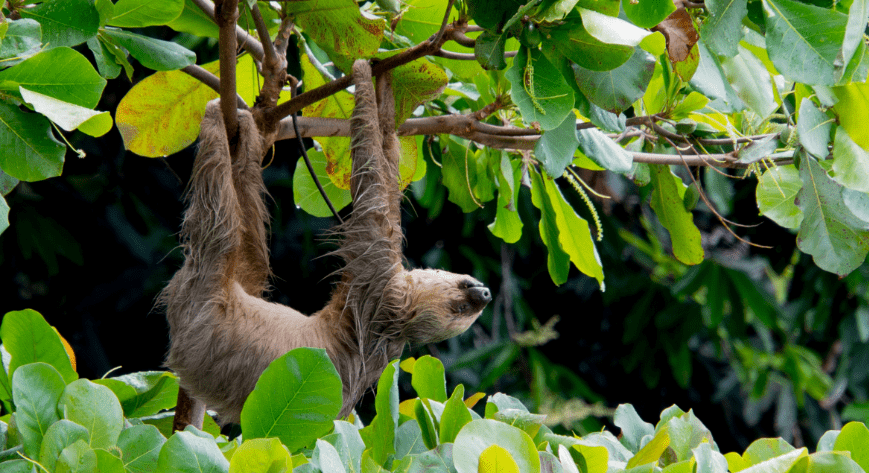
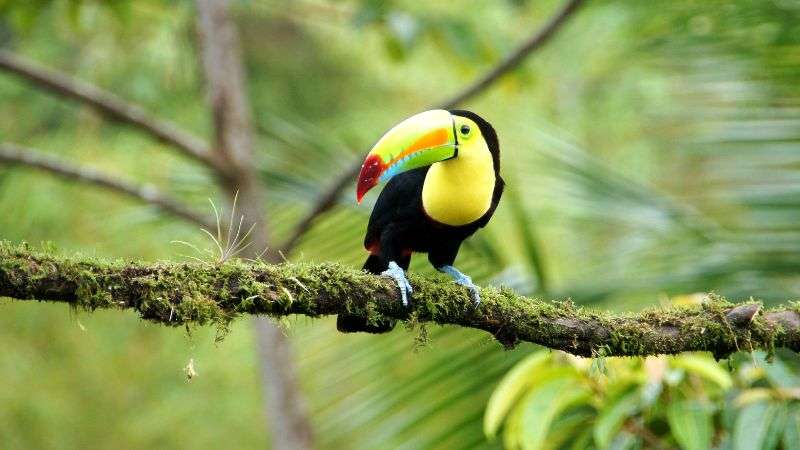
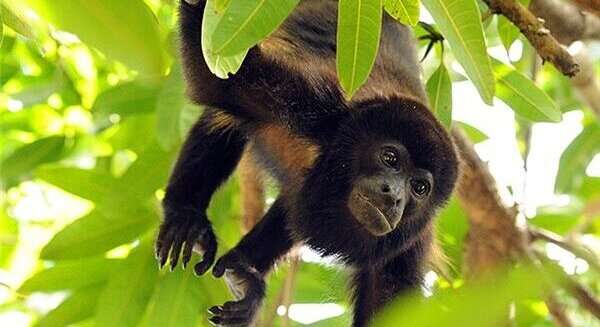
Best Time to Visit Costa Rica's Rainforests
When it comes to visiting Costa Rica’s rainforests, timing is everything. The best time to explore these lush wonders depends on what you’re looking for and the experience you want to have.
If you’re a nature lover and eager to witness the full vibrancy of the rainforest, then visiting during the wet season (May-November) might be your ideal choice. During this time, rainfall is more frequent, which means that the foliage is at its greenest and most abundant. It’s also a great opportunity to see waterfalls in their full glory as they cascade down from towering cliffs.
On the other hand, if you prefer drier weather and want to avoid heavy rainfall, then consider planning your visit during the dry season (December-April). This period offers sunnier days with less chance of precipitation. You’ll have clearer skies for hiking through dense trails or spotting wildlife high up in trees.
No matter when you decide to visit, keep in mind that Costa Rica’s rainforests are teeming with life year-round. From colorful birds fluttering overhead to monkeys swinging through branches, there is always something captivating happening amidst this vibrant ecosystem.
Choosing the best time to visit Costa Rica’s rainforests depends on your personal preferences and what kind of experience you hope to gain from your journey into these incredible natural habitats. So pack your bags accordingly and get ready for an adventure like no other!
Read more: Best Time to Visit Costa Rica
Cultural Experiences
Exploring Costa Rica’s rainforests is not only an opportunity to immerse yourself in nature but also a chance to discover the rich cultural heritage of the indigenous communities that call these forests home. Engaging with these communities can provide a unique insight into their deep connection with the rainforest ecosystem.
Many indigenous tribes have been living harmoniously in Costa Rica’s rainforests for centuries, maintaining their traditional way of life and preserving their ancestral knowledge of the land. By visiting these communities, you can learn about their sustainable practices, medicinal plants, and ancient rituals that are deeply rooted in the natural world around them.
One such community worth exploring is the Bribri tribe located on Costa Rica’s Caribbean coast. They offer eco-tourism experiences where visitors can participate in activities like traditional chocolate making using cacao harvested from within the rainforest or embarking on guided hikes through lush trails led by tribal members who share their wisdom about local flora and fauna.
Another fascinating experience is spending time with the Maleku people near Arenal Volcano National Park. This community has successfully integrated tourism as a means to preserve their culture while creating economic opportunities for its members. Visitors can engage in workshops focused on traditional crafts, storytelling sessions that recount ancient legends related to specific trees found in the rainforest, or even stay overnight in one of their eco-lodges.
By immersing yourself in these cultural exchanges, you not only gain a deeper understanding of Costa Rica’s diverse heritage but also contribute directly to supporting sustainable development initiatives within indigenous communities. Through responsible tourism practices, we can help safeguard both the incredible biodiversity of Costa Rica’s rainforests and ensure that future generations continue to benefit from this vibrant ecosystem.
Read more: Indigenous Culture & Rainforest Package
Rainforest Tours
Tulu offers both both guided hikes and independent trekking options through lush rainforests, volcanic terrains, and scenic trails. Depending on the chosen route, the tour typically lasts between half a day to a full day. Along the way, you’ll encounter vibrant wildlife, stunning waterfalls, and breathtaking vistas, making it an ideal choice for nature lovers and adventure seekers. Enjoy the tranquility of untouched wilderness and learn about the region’s rich biodiversity from knowledgeable guides.
For those seeking a different perspective, the Hanging Bridges Tour offers a unique way to experience the rainforest from above. This adventure, lasting about two to three hours, takes you across a series of suspended bridges, providing panoramic views of the lush canopy below. Located in areas such as Arenal and Monteverde, you’ll have the chance to observe diverse flora and fauna, including vibrant bird species and playful monkeys. The guided tour offers valuable insights into the rainforest ecosystem, making it both educational and thrilling for all ages.
As day turns to night, you can discover the hidden nocturnal wonders with night hiking tours. These guided tours, usually lasting two to three hours, take you deep into the jungle after dark, when many creatures become active. Available in locations like Arenal, Monteverde, and Manuel Antonio, you’ll explore the forest’s nighttime ecosystem and spot various animals such as sloths, raccoons, and colorful frogs.
Manuel Antonio Park Guided Tour showcases one of Costa Rica’s most famous national parks. This tour lasts around three to four hours and takes place in the lush landscapes of Manuel Antonio. Known for its rich biodiversity, the park features pristine beaches, dense rainforests, and a variety of wildlife including monkeys, sloths, and exotic birds. The guided tour takes you to stunning viewpoints and secluded beaches, offering a comprehensive and immersive experience. Ideal for nature lovers and photographers, this tour showcases the best of Manuel Antonio’s natural beauty and ecological diversity.
What to pack when Visiting the Rain Forests
When packing for Costa Rica, consider these essentials to ensure comfort and protection in its tropical environment:
- Lightweight Clothing: Opt for breathable, light garments such as swimsuits, shorts, t-shirts, and sundresses to stay cool.
- Rain Gear: Even during the drier seasons, occasional rain showers can occur. A lightweight rain jacket or poncho is advisable.
- Hiking Shoes: Durable hiking shoes are crucial for exploring Costa Rica’s abundant outdoor activities.
- Insect Repellent: Keep mosquitoes and other insects at bay with a repellent containing DEET.
- Sunscreen: With the sun’s rays being particularly strong, a high SPF sunscreen is necessary to protect your skin.
- Hat and Sunglasses: A wide-brimmed hat and polarized sunglasses will help shield your eyes and face from the sun.
- Backpack: Bring a comfortable, lightweight backpack for carrying essentials during hikes.
- Flashlight or Headlamp: Useful for early mornings, evenings, and exploring darker forest areas.
- Snacks: Pack energy bars or trail mix to keep your energy up during long hikes.
Read more: What to Pack for Costa Rica
Plan your trip to Costa Rica's Rainforest
Eco-tourism plays a vital role in Costa Rica’s economy, thanks to its incredibly diverse ecosystems. The rainforests of Costa Rica, teeming with unique flora and fauna, are essential destinations for nature lovers. Visitors can immerse themselves in the tropical rainforests by staying at exquisite eco-lodges or renting luxurious villas hidden within the jungle.
Explore our Nature packages filled with various rainforests which are buzzing with fascinating animals and acctivities.
FAQ Sections:
Costa Rica’s rainforests experience distinct wet and dry seasons, each contributing to the ever-changing dynamics of the ecosystem.
The wet season, from May to November, brings intense rainfall, rejuvenating the rainforest with vibrant greenery and active wildlife.
The dry season, from December to April, offers sunnier conditions and better visibility, ideal for birdwatching and outdoor activities.
“Veranillo” refers to a brief dry spell in July, a transitional period that showcases the rainforest’s vitality and changing weather.
The wet season offers opportunities for white-water rafting, as rivers and waterfalls swell with rainfall.
The dry season is ideal for canopy tours, zip-lining, and hiking, thanks to sunny weather and accessible trails.
Rainforests help regulate the Earth’s climate by absorbing carbon dioxide and releasing oxygen, playing a crucial role in the global ecosystem.
Practicing responsible tourism, respecting local guidelines, and supporting sustainable practices help preserve the rainforest ecosystem.
Popular rainforest destinations include Corcovado National Park, Monteverde Cloud Forest Reserve, and Tortuguero National Park.
